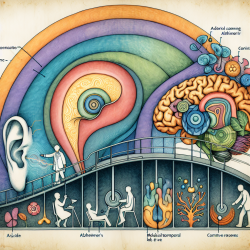Introduction
In the realm of education, the well-being of students is paramount. Recent research titled "Depressive Symptoms and the Link with Academic Performance among Rural Taiwanese Children" sheds light on a critical issue: the high prevalence of depressive symptoms among rural Taiwanese children and its correlation with academic performance. This study, conducted by Gao et al., provides valuable insights that can guide practitioners in improving outcomes for children through targeted interventions and further research.
The Findings: A Closer Look
The study surveyed 1,655 fourth and fifth-grade students across 92 schools in rural Taiwan. Using the Center for Epidemiological Studies-Depression Scale (CES-D), it was found that 38% of students were at risk of general depression, while 8% were at risk of major depression. Notably, poor academic performance was closely associated with a higher prevalence of depressive symptoms, particularly among certain groups such as girls and children with migrant parents.
Implications for Practitioners
For practitioners in speech-language pathology and related fields, these findings underscore the importance of integrating mental health support into educational settings. Here are some actionable steps:
- Early Identification: Utilize tools like the CES-D to identify students at risk of depression early. Early intervention can prevent the escalation of symptoms and improve academic outcomes.
- Targeted Support: Focus on at-risk groups, such as girls and children with migrant parents, providing tailored support that addresses both academic and emotional needs.
- Collaborative Approach: Work closely with educators, parents, and mental health professionals to create a supportive environment that fosters both academic success and emotional well-being.
Encouraging Further Research
While this study provides valuable insights, it also highlights the need for further research. Practitioners are encouraged to explore the following areas:
- Longitudinal Studies: Conduct long-term studies to understand the lasting impact of depressive symptoms on academic performance and overall well-being.
- Intervention Efficacy: Evaluate the effectiveness of various interventions, such as cognitive-behavioral therapy and family engagement programs, in reducing depressive symptoms and improving academic outcomes.
- Cultural Context: Investigate how cultural factors influence the relationship between academic performance and mental health, particularly in diverse settings.
Conclusion
The link between academic performance and mental health is undeniable. As practitioners, we have the opportunity to make a significant impact by addressing both academic and emotional needs. By implementing data-driven interventions and encouraging further research, we can create a brighter future for children in rural Taiwan and beyond.
To read the original research paper, please follow this link: Depressive Symptoms and the Link with Academic Performance among Rural Taiwanese Children.










